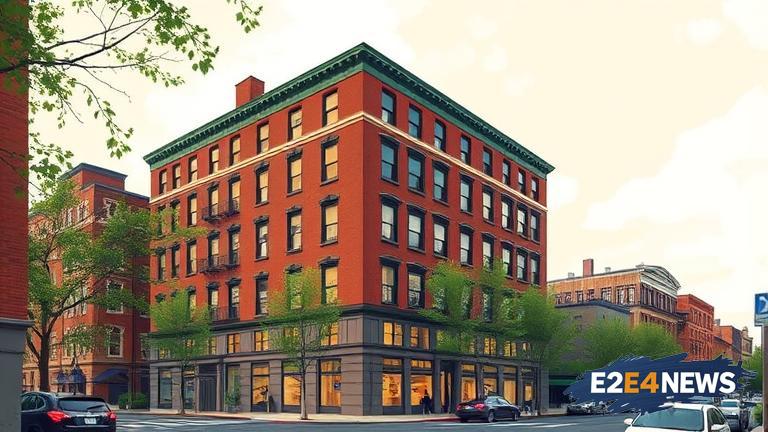In a bold move, developers are proposing a seven-story hotel in the Allston neighborhood of Boston, Massachusetts. The hotel, which would be located on a currently vacant lot, would feature modern amenities and accommodations for guests. However, what sets this proposal apart is the lack of parking facilities, a decision that has sparked debate among local residents and business owners. The developers argue that the hotel’s proximity to public transportation and the growing trend of car-sharing services make parking unnecessary. They also point to the environmental benefits of reducing the number of cars on the road. On the other hand, some residents are concerned about the potential impact on traffic and parking in the area. They argue that the hotel’s guests and staff will still need to park somewhere, and that the lack of parking facilities will put a strain on the already limited parking options in the neighborhood. The proposal has also raised questions about the city’s zoning laws and the role of parking in urban development. As the city continues to grow and evolve, developers and policymakers are being forced to rethink their approach to parking and transportation. The proposal is currently under review by the Boston Planning and Development Agency, and a decision is expected in the coming months. If approved, the hotel would be a significant addition to the Allston neighborhood, which has seen a surge in development in recent years. The hotel would also provide a much-needed boost to the local economy, creating new jobs and generating tax revenue. However, the lack of parking facilities is a concern that cannot be ignored. The city will need to carefully consider the potential impacts of this proposal and work to find a solution that balances the needs of developers, residents, and the environment. The proposal has also sparked a wider conversation about the future of urban development in Boston. As the city continues to grow and evolve, it will be important to prioritize sustainability and environmental responsibility. This may involve rethinking traditional approaches to parking and transportation, and exploring new and innovative solutions. The use of car-sharing services and public transportation is on the rise, and it is likely that this trend will continue in the coming years. By prioritizing these modes of transportation, developers and policymakers can help reduce the number of cars on the road and create more sustainable, livable cities. The proposal for a seven-story hotel in Allston is just one example of the many exciting developments happening in Boston. As the city continues to grow and evolve, it will be important to stay focused on the needs of residents, businesses, and the environment. By working together, we can create a brighter, more sustainable future for Boston. The city’s residents and business owners will be watching the proposal closely, and it will be interesting to see how the city’s zoning laws and parking regulations evolve in response to this and other similar proposals. The proposal is a significant development in the ongoing conversation about the future of urban development in Boston, and it will be important to continue monitoring the situation as it unfolds. The city’s approach to parking and transportation will be an important factor in determining the success of this proposal, and it will be interesting to see how the city balances the needs of different stakeholders. The proposal has the potential to be a major boon for the local economy, but it also raises important questions about the city’s approach to sustainability and environmental responsibility. As the city continues to grow and evolve, it will be important to prioritize these values and work towards creating a more sustainable, livable city for all residents. The proposal for a seven-story hotel in Allston is an exciting development, and it will be interesting to see how it unfolds in the coming months. The city’s residents and business owners will be watching the proposal closely, and it will be important to stay focused on the needs of the community as the city continues to grow and evolve.
